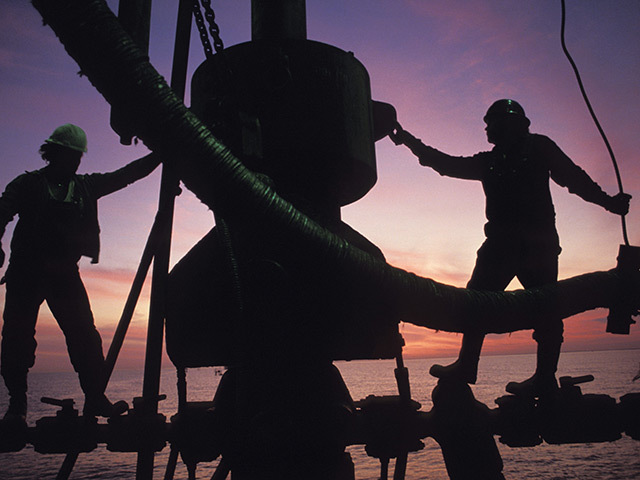
Investment in the UK Continental Shelf could fall by more than 50% by 2016 unless the rate of maturing new developments increases, Oil & Gas UK has warned.
The industry body’s Activity Survey 2014 predicts oil and gas firms will invest around £13billion in the UKCS in 2014 – the second highest level on record – but warns this could fall to £7billion by 2016 due to a decline in proven reserves and less fields securing investment.
It claims the the oil and gas sector is facing its biggest challenge in 50 years with only 15 exploration wells drilled in 2013, down 66% from 2008 when 44 exploration wells were drilled.
“Even if currently planned wells proceed, the rate of drilling is still too low to recover even a fraction of the estimated 6-9billion barrels yet to be found,” said chief executive Malcolm Webb.
“Britain’s waters contain an abundance of oil and gas yet to be found and it is critical we find the means to turn the current state of exploration around. Rig availability and access to capital are the two main barriers noted by our members.”
The activity survey also revealed that operating expenditure was at an all time high in 2013 at £8.9billion – up 15.% on 2012 – warning it could rise further to around £9.6billion this year.
The trade body said average unit operating costs have risen to £17 per boe, while the number of fields with an operating cost higher than £30 per boe had doubled in the last year.
The survey also revealed that few barrels were in production, under development or being considered for investment than last year – of the 10.7billion boe in company plans, 4billion were yet to secure investment and proven reserves have fallen from 7.1billion boe in 2013 to 6.6billion boe in 2014.
“This industry is being challenged on a number of fronts. It is crucial to address rising costs and improve our capital efficiency,” said Mr Webb.
“However, without greatly increased exploration success, more conversion of discoveries into production, a significant improvement in productivity, and a willingness to deploy enhanced oil recovery, we will not realise the full economic potential of our country’s natural resources.”
Despite these challenges, the survey found better than expected production in 2013 at an average of 1.43million barrels of oil equivalent per day (boepd) – 8% lower than 2012 but an improvement on the average 15% yearly decline experienced between 2010 and 2012.
Oil & Gas UK said it expects production to pick up further this year – with 25 new fields due to come online in the next two years, production is projected to reach around 1.7million boped by 2018.
However it warns by this stage, 40% of production will be accounted for by new field developments, underlining the need to find new reserves and bring them into production.
It said tax allowances were a key factor in capex plans for 2014 – 23 of the 26 brownfield projects initiated in 2013 benefit from the Brown Field Allowance.
Oil & Gas said while a total investment of £39billion had been approved on the UKCS, the £35billion awaiting sanction has the potential to delivery nearly three billion barrels.
It said these projects had a greater than 50% chance of proceeding, but warned they were marginal and particularly sensitive to any cost increases.
Mr Webb said: “The UK’s offshore oil and gas industry is the country’s largest industrial investor, paying more tax into the Exchequer than any other sector.
“In order to sustain this sector’s sizeable economic contribution to Britain, it is vital that a competitive environment for investment is sustained.”
Recommended for you
